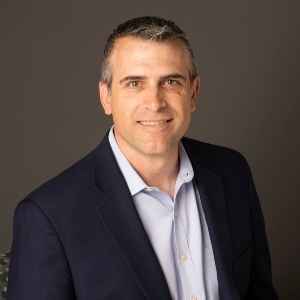Connect with Us
602 Park Point Drive, Suite 225, Golden, CO 80401 – +1 303.495.2073
© 2025 Medical Affairs Professional Society (MAPS). All Rights Reserved Worldwide.
COVID: Cross-Industry Collaboration Podcast Series Episode 2: The What & Lessons Learned – The Specific Topics Covered by the Group




In the midst of the COVID-19 pandemic, an informal cross-industry collaboration developed to share information and best-practices as they chartered into the unfamiliar territories of Emergency Use Authorization (EUA), the process, planning and preparation of the MI teams during a global pandemic. This podcast, a continuation from Episode 1, will discuss the What of the collaboration– the specific topics covered by phactMI, a nonprofit collaboration of Medical Information leaders.
Objectives: The objectives for this podcast series are:
Patrick Reilly 00:00
Welcome to the Medical Affairs Professional Society Medical Information Focus Area Working Group’s two-part podcast series entitled “COVID-19 Cross Industry Collaboration”. In our first podcast we discussed the how and why of coming together. In the second podcast we will discuss the what and lessons learned the specific topics covered by the group. I am Patrick Reilly, and I’ll be the moderator for this podcast. I am a member of the MAPS Medical Information Focus Area Working Group and currently the CEO of phactMI. The views expressed in this recording are those of the individuals and do not necessarily reflect on the opinions of MAPS, or the companies with which they are affiliated. This presentation is for informational purposes only, and is not intended as legal or regulatory advice. We encourage you to engage in conversations about medical formation with other MAPS members via MAPS Connect on the MAPS website or mobile app. Simply log in with the email address and password associated with your MAPS account and access the global community. Then click on the discuss tab and scroll down to Medical Information to post a question or review previous postings. today’s podcast objectives are to discuss the impact the conversations and the group had on your workstream and your internal business stakeholders. Identify the major lessons learned through the collaboration, and lastly, discuss how these lessons can be applied in the future. I’d like to thank today’s panelists for sharing their subject matter expertise with the MAPS membership. Speaking today, our Leena Jindia, PharmD, Senior Director Medical Information Content Strategy and innovation Janssen Scientific Affairs, Steven Hays, PharmD, Director of Medical Information Vaccines North America, Pfizer, and last Truc Dinh PharmD, Senior Manager global medical information Gilead welcome speakers. Before we get started, we’re going to begin with a quick definition of some terms that will be used in this podcast. First term, he you A stands for emergency use authorization. This is a process that allows pharmaceutical companies the ability to provide early access to products in development during public health emergencies, such as COVID-19 pandemic, Mi stands for Medical Information, a function within the pharmaceutical manufacturing companies that plays a significant role in supporting the information needs of the medical community, patients and caregivers by providing the most accurate and up to date information on their company products. The Mi function also provides customer insights that can inform clinical trial development, as well as product lifecycle planning. And lastly, phactMI. This is a form of collaboration for transparent medical formation, a nonprofit consortium of medical information leaders from over 30 pharmaceutical companies committed to both shaping the future and elevating the practice of medical information. Now that we’ve acclimated everyone to the lingo, we’ll start the conversation. And Leena, I’ll start with you. What did you hope to get out of this meeting together?
Leena Jindia 03:38
Sure, Patrick, it was really to share and learn from each other. So we could all be better prepared in managing and navigating the demands challenges and the uncertainties of provision of medical information during the global pandemic supporting products under the emergency use authorization. That was our main goal of coming together.
Steven Hays 04:04
Yes, same here and Leena. Simply, I was just really looking and expecting a touch point opportunity to ask questions and share our experiences. And in my opinion, mission accomplished.
Truc Dinh 04:15
Very similarly, we really wanted to learn from each other’s companies’ experiences, surely approaches to addressing those unique medical information situations and challenges on how to provide medical information to help patients healthcare providers and payers make those informed decisions in this unprecedented pandemic situation.
Patrick Reilly 04:35
So Truc, let me follow up on that, as you were looking at learnings from other experiences. What were you looking at getting out of the conversation specifically?
Truc Dinh 04:43
Yeah, we’re hoping from these conversations together to focus on sharing those best practices and really learning from each other’s experiences. We really wanted to understand how other companies were approaching key medical information activities during the COVID 19 pandemic. For example, first, we were really interested in understanding resourcing and context center support during the pandemic and how to meet the influx of increase of questions that may be coming in from customers. Second, content development, how are we developing medical information responses that met the needs of our health care providers and patients. And third, understanding how we can support the new influx of information data publication Preprints, press releases and news media, that we’re putting information out there at a fast-moving pace.
Steven Hays 05:33
Well, my original expectation was to learn from my phactMI colleagues about how they approached a new way from the most basic nature, meaning do they handle a medication authorized under an EUA, the same as a fully FDA approved medication. This quickly transitioned to confirm with both companies if our approach of global workstreams and responsibilities was a sound one. And then we went on to opportunities to share best practices on staffing hours of operation, the channels we use to respond to inquiries and the use of digital tools to meet our customers needs.
Leena Jindia 06:05
Yeah, and similar to what Truc and Steven said, for us, it was to gain an understanding from the learnings and experiences of other companies who were ahead of us in the emergency use authorization journey, and how they manage the resources within medical information. And the contact centers, how they anticipated volumes of increase scientific content development, channels of engagement with the customer, so we could be better prepared.
Patrick Reilly 06:35
Interesting. So I’m curious as to what the benefit was and how you shared it internally. So Steven, how did the conversations and the collaboration benefit your workstream and internal business stakeholders?
Steven Hays 06:47
Patrick, I found a reassuring that our approaches were generally quite comparable. This helps solidify the decisions that we made within our workstreams here in our company, and gave us the confidence to move forward with our plans. Specifically, from a response content standpoint, I think this collaboration resulted in stronger content that is not only provided by EMI to our HCP and non HCP customers, but also leveraged by our Medical Affairs colleagues within the organization for their use.
Truc Dinh 07:15
And I agree with Steven and have the same sentiments being able to share those best practices really positively reinforced our own approaches to solutions and supporting a COVID-19 product. No, it’s also really interesting to see that we’re all quite similar in our approaches.
Leena Jindia 07:30
Yeah, and Patrick, as I mentioned earlier, the workstream members learn from each other’s experiences, and were better prepared in managing and navigating the demands challenges and the unknowns of provision of medical information during the global pandemic.
Patrick Reilly 07:47
Well, I’m sure the audience would love to know more about lessons learned, so Leena, from your standpoint, what were some of the major lessons learned that were shared?
Leena Jindia 07:56
Sure, Patrick. So I think that one of the biggest one was that each company had similar experiences and learnings. For example, medical information teams had to operate under an all hands on deck approach or model in order to support the workload demands. That was coming from the global pandemic increase. We already received. We also noted predictable aberrations that would impact medical information, inquiry volume, such as data releases, any press coverage, etc. That helped us stay ahead of the overall curve, as well as the importance of availability of a self service medical information website for managing the onslaught of increase that we received on our products.
Steven Hays 08:47
Yeah, for sure. It was definitely helpful to remember that we’re part of something bigger here and not alone. Sharing how we partner with other departments, mainly Medical Affairs, have we resourced our contact center and set up enhanced coverage posting UAE and the types and volumes of increased? We’re all definitely helpful. I personally clean several takeaways about the EU process itself from Truc.
Truc Dinh 09:08
Yeah, and I. And again, we are not alone. It was nice to learn that we were not the only company who is experiencing this unique pandemic situation while supporting a COVID-19 therapy that really helped to make us ensure that we have the resources needed and to ensure the rapid dissemination of medical information. For example, phactMI links, all of our medical information websites in one place, it’s a one stop shop, and it helped bring value to our healthcare providers to know that they can go to one place to find medical information.
Patrick Reilly 09:41
Interesting, great resource. Thanks for that, Truc. Can you talk a little bit more about these lessons learned and how they might be applied to the future?
Truc Dinh 09:50
Yes, for the future, it would be ideal for us to come together early and learn from each other as we have, rather than reinventing the wheel in Arc As we didn’t know if anyone else was in the same situation as us, and now knowing there is this platform where we can share these best practices, it’d be a no brainer to reach out to phactMI leverages network again.
Leena Jindia 10:12
In addition, Patrick, this unique global pandemic situation taught us that no matter what the trigger is, medical information departments across the industry, face similar challenges. And that phactMI member companies are eager to collaborate, to share learnings and best practices. So in future, my biggest learning is do not hesitate in initiating such a forum or a work stream at the onset of an issue or event.
Steven Hays 10:40
Definitely, if we can collaborate in this manner, during the feverish pace of a pandemic, we can surely do this for other important Albia less significant events.
Patrick Reilly 10:49
So again, your competitors I think there are companies that are not part of phactMI don’t know if we covered off on that or not, whether they were involved or not, but is we think about hopefully not another pandemic, but but other opportunities in the future. To to experience this, how would that impact your organization’s approach? Moving forward? Leena?
Leena Jindia 11:18
Yep, this collaboration really has been a well received within my organization, it exemplifies really a positive message of phactMI member companies coming together, while using the guardrails that we have set forth by phactMI, antitrust guidelines, for example, for the sake of the common goal, which is to win the fight with the pandemic, in future, we will be able to apply a similar model to combat similar situation. You know, I hope it’s, it’s, you know, not as intense, but, you know, it’s similar situations where we can work together and collaborate.
Truc Dinh 11:59
And it very similarly, we learned that we can leverage back to my as a collaborative space, we can consider earlier collaboration with back to mind for sharing future learnings for product launches in unique spaces or during unique situations. And we also want to continue our active collaboration and participation and ongoing phactMI work streams for continued learning and best practice sharing.
Steven Hays 12:23
I will admit that our three MI departments have long been deeply involved with phactMI. In this specific use case, we each benefited from the shared best practices of these three specific member companies. But we look forward to future collaborations with the dozens of other phactMI member companies and strongly encourage any MI departments out there who may not be a part of phactMI to join us?
Patrick Reilly 12:44
Well, Steven, thank you for that invitation to other companies, because I think it’s important that this is not just a phactMI initiative, although phactMI played an important role in this. And I’m proud to say that the work that you guys have done certainly should be a role model for the future in these opportunities. Well, thanks, everybody for your input. And I just wanted to again, review the objectives and some key takeaways from this podcast today. First objective was to discuss the impact the conversations in the group had on your work stream, and within your own internal business stakeholders, I think we heard some really good feedback on that in terms of how each of these companies were able to use this information to benefit themselves and share that information internally for the overall company’s benefit. Second, was to identify the major lessons learned through the collaboration. One of the lessons learned, I heard very clearly is the earlier the better. Trust is obviously very important, but getting together early and being able to discuss these issues and understand some of the challenges and work through those together was critically important. And then lastly, discuss how these lessons can be applied in the future. I think we have a model here again, exemplified by three companies that were part of an organization that clearly gave them a feeling of trust and confidence and sharing information. But I think there’s opportunity to go beyond that end, Steven mentioned that in his comments as well. And we would invite other companies to join in similar types of learnings from from some of these opportunities to join together as organizations the cross collaboration beyond just the phactMI companies. Once again, I want to thank the speakers Leena Jindia, Steven Hays, Truc Dinh. This has been the second and the final podcast in this series on this topic. If you would like to learn more about phactMI please visit our website at phactMI.org for more information. If you are a MAPS member, thank you for your support of MAPS. If you’re not a MAPS member and would like to access to additional resources in this area, please visit the MAPS website if you’re ready to explore joining today at MedicalAffairs.org/membership This concludes the podcast and this series. Thank you.
602 Park Point Drive, Suite 225, Golden, CO 80401 – +1 303.495.2073
© 2025 Medical Affairs Professional Society (MAPS). All Rights Reserved Worldwide.

 4 Steps for Making Your Medical Affairs Programs Useful to Patients
4 Steps for Making Your Medical Affairs Programs Useful to Patients